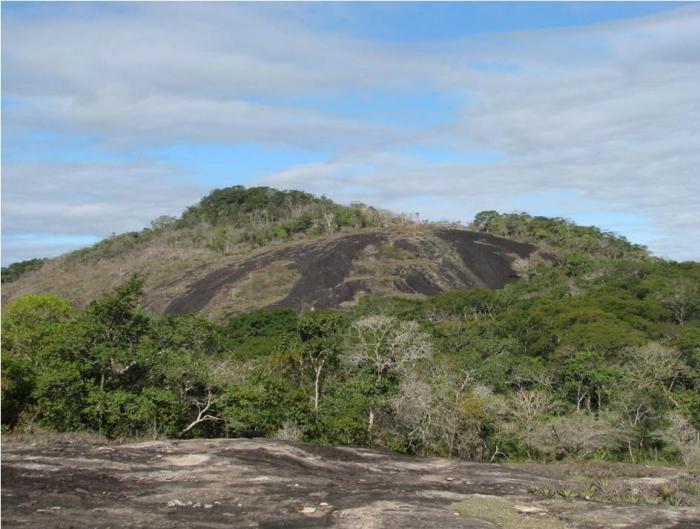Paola Pozo Inofuentes
Other projects
2 May 2012
Ecology and Biology of Threatened Narrow Endemics of Rock-Outcrops in the Bolivian Cerrado Biome: An Approach to the Conservation of Rare Plants
In collaboration with local communities this study aims to generate information about diversity and endemism on rock outcrops along with distribution, population status and threats to the survival of endemic species.

Preliminary research in the Bolivian Cerrado Biome has identified rock outcrops as hotspots of plant diversity and endemism, including species new to science. Different modes of sculpturing of the rock surface produce a great variety of microhabitats with very specific microclimatic conditions that afford opportunities for the establishment of a highly specialised, often endemic flora. Nevertheless, plant communities on rock outcrops have not been included in earlier floristic inventories, and information about this vegetation is almost non-existent but a priority for study and of great importance for the species protection. Most plants typical of rock outcrops have restricted distributions and many are narrow endemics, suggesting that they could be endangered.
In this context, the project is going to acquire information about plant diversity and the level of endemism on rock outcrops in the Bolivian Cerrado biome, through botanical surveys of rock platforms, rock towers, campo rupestre and granite domes. Additionally, to help clarify the conservation status of some endemics and potentially endangered plant species on rock outcrops the project will generate data about their distribution and population status through the installation and evaluation of inventory plots. Moreover, this study will identify threats to species survival and provide conservation recommendations. The project will focus in the serranías of Roboré where at least 55% of the total endemic plants of the Bolivian Cerrado biome was founded and the serranías of Concepción where most of the rock outcrops remain un-explored.
By working with communities we expect to stimulate collaboration between scientific research and local people in the conservation and research process. We anticipate an increase in the enthusiasm and capacity of local people for future conservation initiatives after receiving presentations, workshops and printed material. At the end of the study, local people, the scientific community and policy makers should have an increased awareness of the importance of rock outcrops as hotspots of plant diversity and endemism. We hope to establish a collaborative atmosphere in which conservation initiatives will be welcomed. This study will therefore, make a substantial and long-lasting contribution to nature conservation.